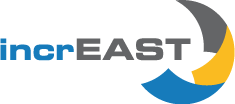

13.10.2023 []
|
Opening ceremony of SMART|EDM_Lab Left to right: Prof. Darejan Tvaltvadze (Acting Rector TSU), Georgian Science Minister Alexander Jejelava, Prof. Sebastian M. Schmidt (Member of the Board of Directors of Forschungszentrum Jülich) | © Dr Andro Kacharava, Forschungszentrum Jülich |
The Georgian Ministry of Education and Science, the Shota Rustaveli National Science Foundation (SRNSF) and the Federal Ministry of Education and Research (BMBF) organised the Georgian-German Science Day and the Georgian-German Science Bridge Day as part of the Science and Innovation Festival 2016 in Tbilisi, Georgia.
On both days (19 and 21 September 2023), a group of scientists from Forschungszentrum Jülich actively participated in the program. In particular, FZ Jülich board member Prof. Sebastian Schmidt together with the Science Minister of Georgia, Alexander Jejelava, opened the SMART|EDM_Lab at the TSU on September 21st, 2016. SMART stands for 'Science, Medicine, Applied Research and Technology'; whereas EDM stands for electric dipole moment.
The concept of these laboratories is to offer young and in Jülich well-trained Georgian scientists an attractive return option to their homeland. The Georgian Ministry of Education and Science funds the SMART|Labs; with equipment and know-how delivered by Jülich. Further SMART|Labs are planned in the areas of climate and brain research.
Over the last 2 decades Forschungszentrum Jülich has built very intense collaborations with four Georgian universities: Tbilisi State University (TSU), Georgian Technical University (GTU), the Ilia State University (ISU) and the Agricultural University of Georgia. Many joint projects and workshops have been implemented already, such as the latest events in August/September 2016 in Tbilisi. These two workshops on 'Spin Physics, Symmetries and Applications' and 'Chemical and Mathematical Aspects of Environmental (Atmosphere) Monitoring' were jointly organised by the partners involved.
Further information:
Source: Forschungszentrum Jülich